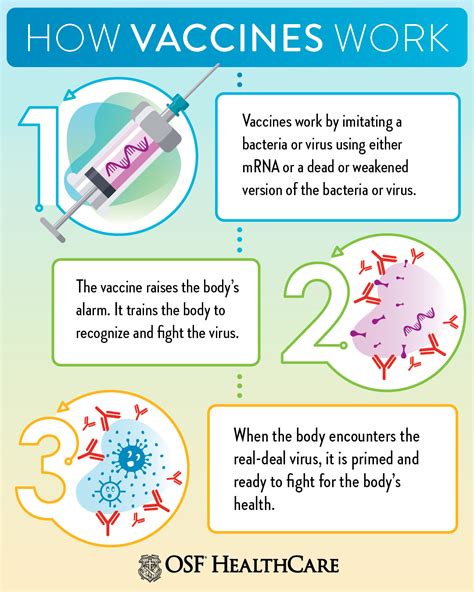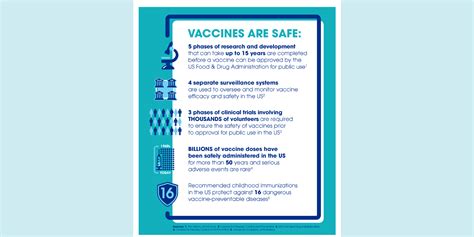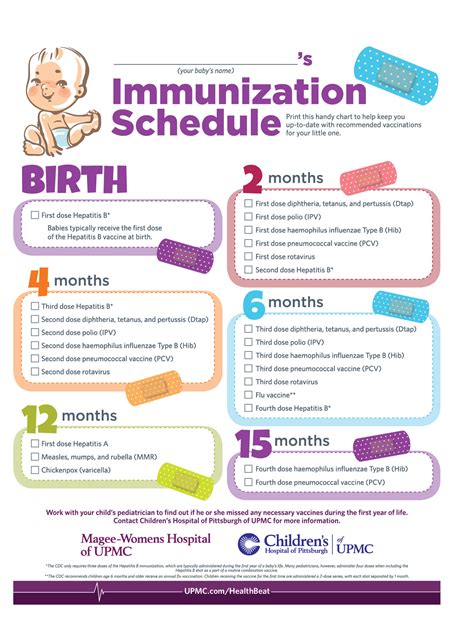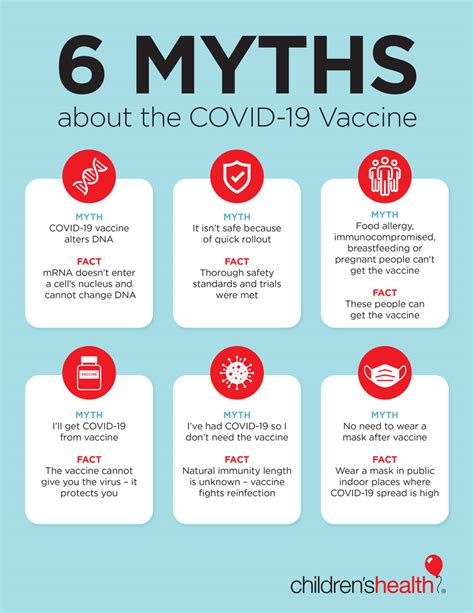Intro
Discover the 5 essential newborn vaccines, including Hepatitis B and Rotavirus, to protect against infectious diseases and ensure infant health, with vaccination schedules and benefits.
Newborn babies are delicate and vulnerable to various diseases, which is why vaccinations play a crucial role in protecting them from serious health issues. The first few months of a baby's life are critical, and receiving the necessary vaccinations can help prevent the spread of diseases and ensure the baby's overall health and well-being. In this article, we will delve into the world of newborn vaccines, exploring their importance, types, and benefits.
Vaccinations have been a cornerstone of modern medicine, saving countless lives and preventing the spread of diseases. Newborn babies, in particular, are susceptible to various infections, which can have severe consequences if left untreated. The good news is that most of these diseases can be prevented with the help of vaccinations. By understanding the different types of newborn vaccines and their benefits, parents can make informed decisions about their baby's health.
The importance of newborn vaccines cannot be overstated. These vaccinations help protect babies from serious diseases, some of which can be life-threatening. Moreover, vaccinations also play a critical role in preventing the spread of diseases within communities. By vaccinating their babies, parents not only ensure their child's health but also contribute to the overall health and well-being of society. With so many different types of vaccinations available, it can be overwhelming for new parents to navigate the world of newborn vaccines.
Vaccine Types and Schedules

Newborn babies require several vaccinations to protect them from various diseases. The most essential vaccines for newborns include the Hepatitis B vaccine, Rotavirus vaccine, Diphtheria, Tetanus, and Pertussis (DTaP) vaccine, Haemophilus influenzae type b (Hib) vaccine, and the Pneumococcal conjugate (PCV) vaccine. Each of these vaccines plays a vital role in protecting babies from serious health issues.
Benefits of Newborn Vaccines
The benefits of newborn vaccines are numerous. Not only do they protect babies from serious diseases, but they also help prevent the spread of infections within communities. By vaccinating their babies, parents can ensure their child's health and well-being, as well as contribute to the overall health of society. Some of the key benefits of newborn vaccines include: * Protection against serious diseases * Prevention of disease spread within communities * Boosting the baby's immune system * Reducing the risk of complications and hospitalizationsHow Vaccines Work

Vaccines work by introducing a small, harmless piece of a virus or bacteria to the body, which triggers the immune system to produce antibodies. These antibodies help fight off the infection, providing the baby with immunity against the disease. The process of vaccination is straightforward and relatively painless, with most babies experiencing only minor side effects, such as redness and swelling at the injection site.
Vaccine Administration
Vaccines are typically administered through injections, with the number of doses and schedule varying depending on the type of vaccine. For example, the Hepatitis B vaccine is usually given in three doses, with the first dose administered at birth, the second dose at 1-2 months, and the third dose at 6-18 months. The Rotavirus vaccine, on the other hand, is given in two or three doses, with the first dose administered at 2 months and the subsequent doses at 4 and 6 months.Common Newborn Vaccines

Some of the most common newborn vaccines include:
- Hepatitis B vaccine: protects against Hepatitis B, a serious liver infection
- Rotavirus vaccine: protects against Rotavirus, a common cause of diarrhea and dehydration in babies
- Diphtheria, Tetanus, and Pertussis (DTaP) vaccine: protects against Diphtheria, Tetanus, and Pertussis, serious bacterial infections
- Haemophilus influenzae type b (Hib) vaccine: protects against Haemophilus influenzae type b, a serious bacterial infection
- Pneumococcal conjugate (PCV) vaccine: protects against Pneumococcal disease, a serious bacterial infection
Vaccine Side Effects
While vaccines are generally safe and effective, they can cause some minor side effects, such as: * Redness and swelling at the injection site * Fever * Fussiness * Loss of appetite It's essential for parents to discuss any concerns they may have about vaccine side effects with their pediatrician.Vaccine Safety

Vaccines are rigorously tested for safety and effectiveness before they are approved for use. The Centers for Disease Control and Prevention (CDC) and the World Health Organization (WHO) closely monitor vaccine safety and provide guidance on vaccine administration. While vaccines can cause some minor side effects, the benefits of vaccination far outweigh the risks.
Vaccine Effectiveness
Vaccines are highly effective in preventing the spread of diseases. According to the CDC, vaccines have been shown to be 90-100% effective in preventing serious diseases, such as Hepatitis B and Haemophilus influenzae type b. By vaccinating their babies, parents can significantly reduce the risk of their child contracting a serious disease.Importance of Vaccine Schedules

Vaccine schedules are critical in ensuring that babies receive the necessary vaccinations at the right time. The CDC recommends a specific vaccine schedule for newborns, which includes a series of vaccinations at 2, 4, 6, and 12-18 months. By following the recommended vaccine schedule, parents can ensure their baby receives the best possible protection against serious diseases.
Consequences of Delayed Vaccination
Delaying vaccination can have serious consequences, including: * Increased risk of disease transmission * Reduced effectiveness of vaccines * Increased risk of complications and hospitalizations It's essential for parents to stick to the recommended vaccine schedule to ensure their baby receives the best possible protection against serious diseases.Addressing Vaccine Misconceptions

Unfortunately, there are many misconceptions surrounding vaccines, which can lead to confusion and hesitation among parents. Some common misconceptions include:
- Vaccines cause autism: numerous studies have shown that there is no link between vaccines and autism
- Vaccines are not effective: vaccines are highly effective in preventing the spread of diseases
- Vaccines are not safe: vaccines are rigorously tested for safety and effectiveness before they are approved for use It's essential for parents to separate fact from fiction and make informed decisions about their baby's health.
Seeking Accurate Information
Parents can seek accurate information about vaccines from reputable sources, such as the CDC, WHO, and the American Academy of Pediatrics (AAP). By consulting with their pediatrician and doing their own research, parents can make informed decisions about their baby's health and ensure they receive the best possible protection against serious diseases.Conclusion and Next Steps

In conclusion, newborn vaccines are a critical component of a baby's health and well-being. By understanding the different types of vaccines, their benefits, and importance, parents can make informed decisions about their baby's health. It's essential for parents to stay informed, follow the recommended vaccine schedule, and consult with their pediatrician to ensure their baby receives the best possible protection against serious diseases.
We invite you to share your thoughts and experiences with newborn vaccines in the comments below. If you have any questions or concerns, please don't hesitate to reach out to your pediatrician or a reputable health organization. Together, we can work towards a healthier and happier community for all.
What are the most common newborn vaccines?
+The most common newborn vaccines include the Hepatitis B vaccine, Rotavirus vaccine, Diphtheria, Tetanus, and Pertussis (DTaP) vaccine, Haemophilus influenzae type b (Hib) vaccine, and the Pneumococcal conjugate (PCV) vaccine.
How do vaccines work?
+Vaccines work by introducing a small, harmless piece of a virus or bacteria to the body, which triggers the immune system to produce antibodies. These antibodies help fight off the infection, providing the baby with immunity against the disease.
What are the benefits of newborn vaccines?
+The benefits of newborn vaccines include protection against serious diseases, prevention of disease spread within communities, boosting the baby's immune system, and reducing the risk of complications and hospitalizations.
Are vaccines safe?
+Yes, vaccines are safe and effective. They are rigorously tested for safety and effectiveness before they are approved for use. While vaccines can cause some minor side effects, the benefits of vaccination far outweigh the risks.
What is the recommended vaccine schedule for newborns?
+The recommended vaccine schedule for newborns includes a series of vaccinations at 2, 4, 6, and 12-18 months. It's essential for parents to stick to the recommended vaccine schedule to ensure their baby receives the best possible protection against serious diseases.
